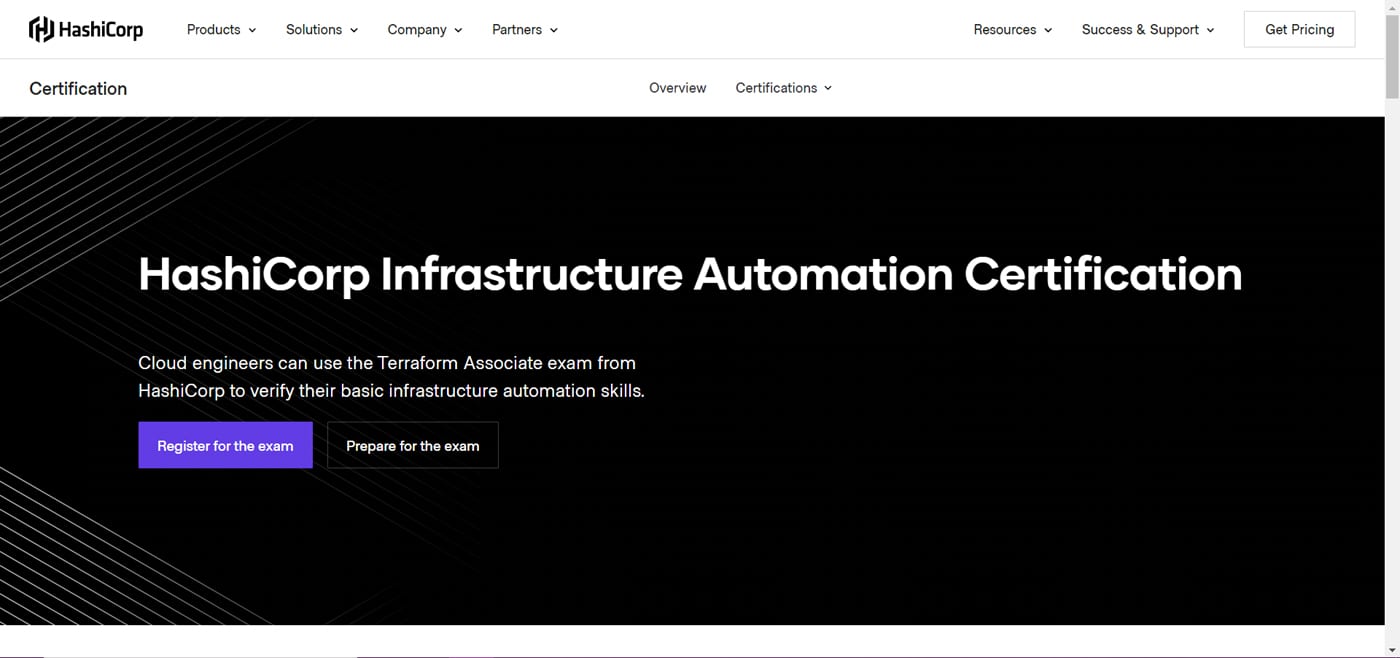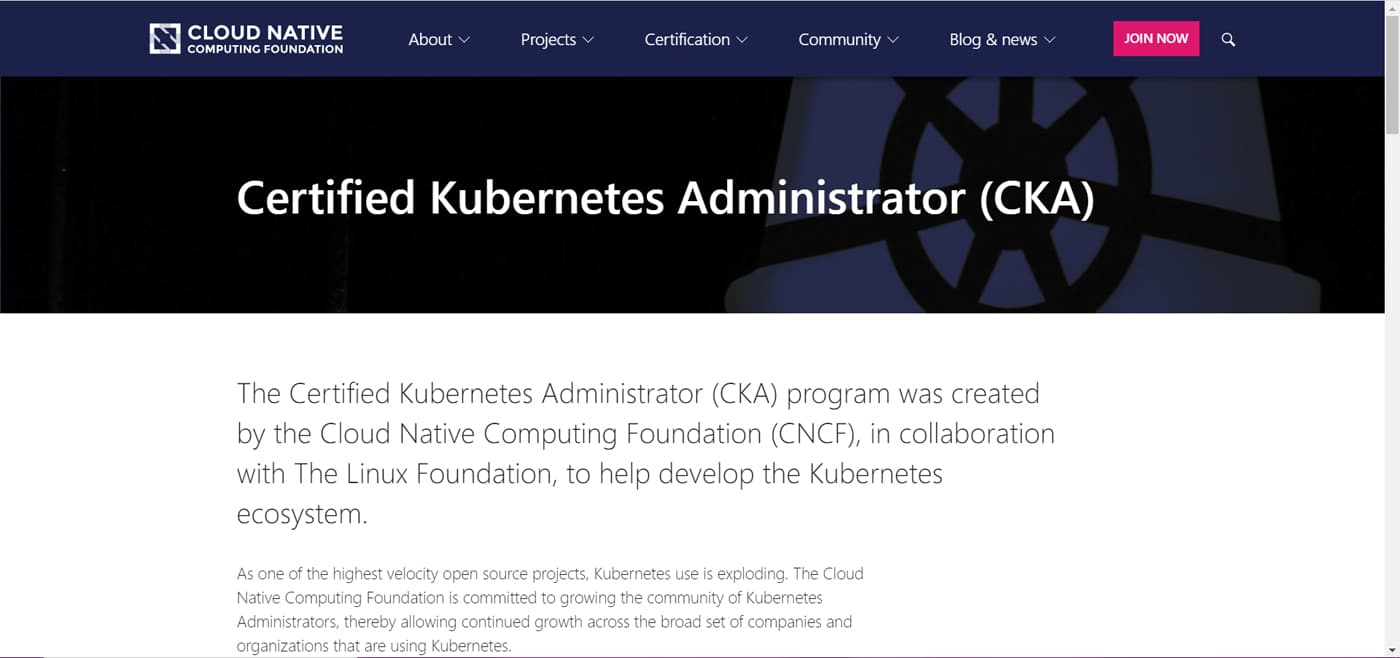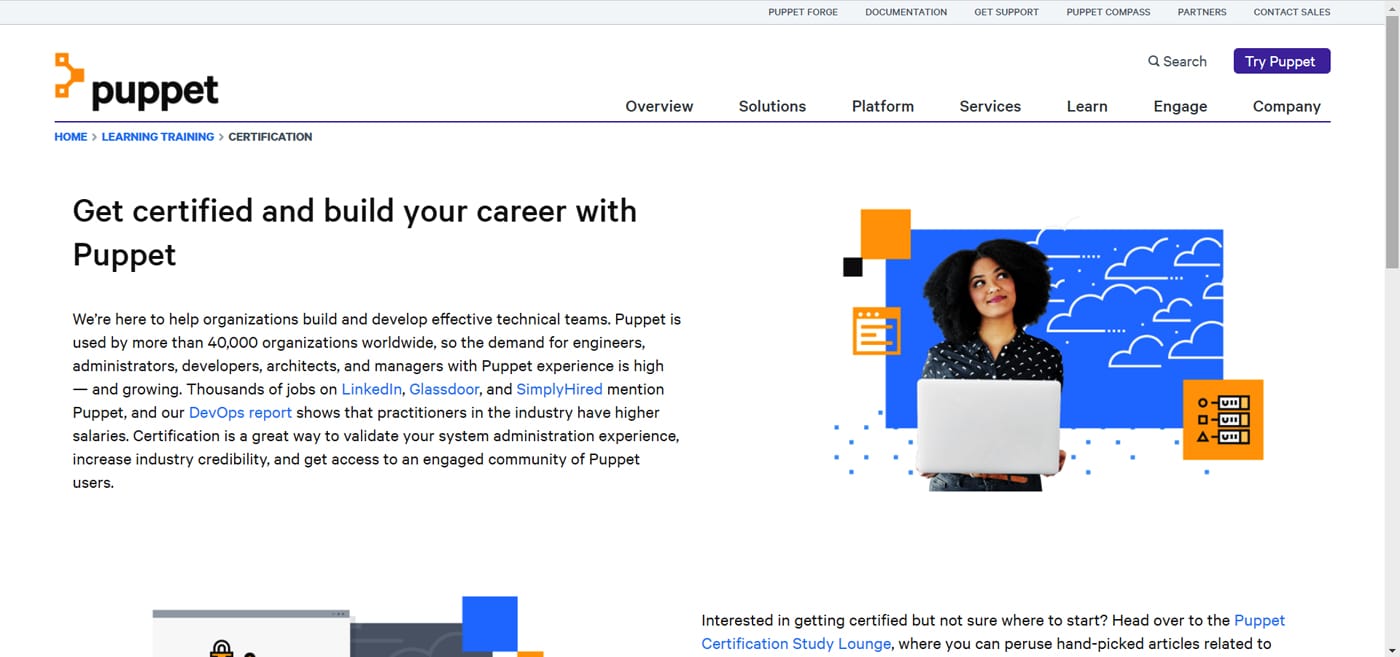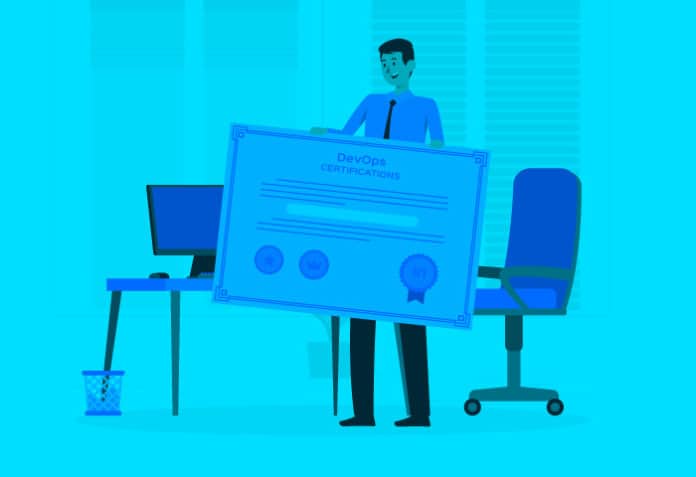In the second part of this series of articles on DevOps certifications, we take a look at seven more online courses that you could benefit from if you are looking at a career in DevOps.
The DevOps certifications listed in this article relate to different tools and frameworks, and can be useful for different levels of skillsets.
Certified SAFe® DevOps Practitioner
This course will help you to improve the continuous delivery pipeline with a value stream mapping exercise. It will also help to implement DevOps practices such as continuous exploration, continuous integration, continuous deployment, release-on-demand, continuous testing, and continuous security.
| Registration fees | Rs 50,000 for SAFe® DevOps Practitioner (SDP) certification. First exam attempt is included as part of the course registration fee if it is taken within 30 days of course completion. Each retake attempt costs US$ 50. |
| Prerequisites | None. Attendees must attend both days of the course in order to qualify for the exam. |
| Questions and format | 45. Multiple choice, multiple response |
| Duration | 90 minutes |
| Passing score | 33 out of 45 (73 per cent) |
| Medium of delivery | Web based (single browser), closed book, no outside assistance, timed |
| Open book | No |
| Exam content and objectives/Skills measured |
|
| Good reference books | Course materials, Study guide, Practice test |
| Benefits | Value stream mapping exercise (VSM) on a specific scenario helps to understand VSM concepts and real-time implementation. |
| Training | https://www.scaledagile.com/training/calendar/?course_id=SAFe+DevOps |
| My view | The cost is on the higher side, but topic coverage and training is amazing. It covers all DevOps practices in depth from an organisation’s perspective and helps immensely in culture transformation. |
Certified Jenkins Engineer (CJE)
CJE certification covers a basic understanding of CI/CD concepts and best practices, and focuses on pipelines and production grade expertise. A certificate holder will have hands-on experience to effectively use Jenkins in end-to-end automation of application life cycle management activities.
| Registration fees | US$ 150 @ Authorized Test Center (KTN) or US$ 99 for Online Proctored (OLP) exam |
| Prerequisites | Certified Jenkins Engineer (CJE) exam
These classes are available as: Self-paced training on CloudBees University; Scheduled instructor-led Jenkins training classes; Through special arrangements with a Certified CloudBees Training Partner; and at the DevOps world conference |
| Questions and format | 60 multiple choice questions |
| Duration | 90 minutes |
| Passing score | 66 per cent |
| Medium of delivery | Authorized Test Center (KTN) or Online Proctored (OLP) exam |
| Open book | No |
| Exam content and objectives |
|
| Good reference books | Hands-on Pipeline as Code with Jenkins: CI/CD Implementation for Mobile, Web, and Hybrid Applications Using Declarative Pipeline in Jenkins; https://www.amazon.com/Hands-Pipeline-Code-Jenkins-Implementation/dp/9389898609 |
| Benefits |
The course helps to understand CI/CD concepts and DevOps practices as well as the major features of Jenkins such as pipelines and, optionally, CloudBees Core. It helps to gain basic knowledge that helps with CI/CD implementation at production level, with best practices for open source Jenkins. |
| Free training |
Yes; https://standard.cbu.cloudbees.com/cloudbees-university-jenkins-pipeline-fundamentals |
| Schedule your exam |
https://www.webassessor.com/cloudbees |
| My view |
This was by far the toughest exam I gave with respect to questions and topic coverage, and gave me a lot of satisfaction when I saw the result. Pipeline coverage was very good. |
Certified CloudBees Jenkins Engineer (CCJE)
CCJE certification covers basic understanding of CI/CD concepts and best practices, and is focused on pipelines and production grade expertise. Certificate holders will have hands-on experience to effectively utilise Jenkins and CloudBees in end-to-end automation of application life cycle management activities.
| Registration fees | US$150 @ Authorized Test Center (KTN) or US$ 99 @ Online Proctored (OLP) exam |
| Prerequisites |
Certified CloudBees Jenkins Engineer (CCJE) exam
|
| Questions and format | 90 multiple-choice questions; 60 questions about Jenkins and CloudBees Jenkins distribution features; 30 additional questions about CloudBees Core features |
| Duration | 120 minutes |
| Passing score |
66 per cent |
| Medium of delivery |
Authorized Test Center (KTN) or Online Proctored (OLP) exam |
| Open book | No |
| Exam content and objectives |
|
| Good reference books | Hands-on Pipeline as Code with Jenkins: CI/CD Implementation for Mobile, Web, and Hybrid Applications Using Declarative Pipeline in Jenkins; https://www.amazon.com/Hands-Pipeline-Code-Jenkins-Implementation/dp/9389898609 |
| Benefits | It helps to understand CI/CD concepts and DevOps practices as well as the major features of Jenkins such as pipelines and, optionally, CloudBees Core. You get basic knowledge to help with CI/CD implementation at the production level with best practices for CloudBees Jenkins. |
| Free training |
Yes; https://standard.cbu.cloudbees.com/cloudbees-university-jenkins-pipeline-fundamentals |
| Schedule your exam |
https://www.webassessor.com/cloudbees |
| My view |
CCJE covers extra topics for CloudBees Jenkins along with normal Jenkins topics. This adds a lot of value considering the multiple tools available in the market for DevOps practices implementation. |
HashiCorp Infrastructure Automation Certification: Terraform Associate
The Terraform Associate certification ensures a person has hands-on experience using Terraform. It distinguishes between open source and enterprise versions, and what is feasible with which variant.
| Registration fees | US$ 70.50 |
| Prerequisites |
Basic terminal skills; Basic understanding of on-premises and cloud architecture |
| Questions and format |
Multiple choice |
| Duration |
60 minutes |
| Medium of delivery |
Online proctored |
| Open bookOpen book |
No |
| Exam content and objectives |
|
| Good reference books | Study Guide – Terraform Associate Certification, https://learn.hashicorp.com/tutorials/terraform/associate-study; Exam Review – Terraform Associate Certification, https://learn.hashicorp.com/tutorials/terraform/associate-review |
| Sample questions |
https://learn.hashicorp.com/tutorials/terraform/associate-questions |
| Schedule your exam |
https://hashicorp-certifications.zendesk.com/hc/en-us/articles/360049382552 |

Certified Kubernetes Administrator (CKA)
The Certified Kubernetes Administrator (CKA) certificate holder can efficiently manage Kubernetes environments. The exam is more performance related.
| Registration fees | US$ 300 and includes one free retake |
| Questions and format | Performance based items (problems) to be solved in a command line |
| Duration | 120 minutes |
| Passing score | 66 per cent or above |
| Medium of delivery | Proctored remotely via streaming audio, video, and screen sharing feeds |
| Open book | Documents installed by the distribution (i.e., /usr/share and its subdirectories); Access allowed for https://kubernetes.io/docs/, https://github.com/kubernetes/, https://kubernetes.io/blog/ and their subdomains. This includes all available language translations of these pages (e.g., https://kubernetes.io/zh/docs/). |
| Exam content and objectives |
|
| Benefits | Certified K8s administrators can do basic installation as well as configuring and managing production-grade Kubernetes clusters. They will have an understanding of key concepts such as Kubernetes networking, storage, security, maintenance, logging and monitoring, application life cycle, troubleshooting, API object primitives, and the ability to establish basic use cases for end users. |
| Training | https://training.linuxfoundation.org/training/kubernetes-fundamentals/ |
| Schedule your exam | https://training.linuxfoundation.org/certification/certified-kubernetes-administrator-cka/ |

Certified Kubernetes Application Developer (CKAD)
The CKAD certification ensures a person has hands-on experience in Kubernetes application development and defining application resources, as well as building, monitoring, and troubleshooting scalable applications in Kubernetes.
| Registration fees | US$ 300 and includes one free retake |
| Questions and format | Performance based problems to be solved in a command line |
| Duration |
120 minutes |
| Passing score | 66 per cent |
| Medium of delivery | Proctored remotely via streaming audio, video, and screen sharing feeds |
| Open book | Documents installed by the distribution (i.e., /usr/share and its subdirectories); Access allowed for https://kubernetes.io/docs/, https://github.com/kubernetes/, https://kubernetes.io/blog/ and their subdomains. This includes all available language translations of these pages (e.g., https://kubernetes.io/zh/docs/). |
| Exam content and objectives |
|
| Benefits | The K8 application developer can design, build, configure and expose cloud native applications for Kubernetes. A CKAD certificate holder can define application resources and use core primitives to build, monitor, and troubleshoot scalable applications and tools in Kubernetes. The exam assumes knowledge of, but does not test for, container runtimes and microservices architecture.
|
| Training | https://training.linuxfoundation.org/training/kubernetes-for-developers/ |
| Schedule your exam | https://training.linuxfoundation.org/certification/certified-kubernetes-application-developer-ckad/ |
Puppet Professional Certification
This certification ensures a person has hands-on experience in managing infrastructure, right from provisioning and configuration to patch management and compliance, by using Puppet IT automation software.

| Registration fees | US$ 200 |
| Prerequisites |
|
| Questions and format | Multiple-choice questions |
| Duration | 90 minutes |
| Passing score | The passing score is set based on the exam content, and is unique to each exam. |
| Medium of delivery | Proctored online |
| Open book | No |
| Exam content and objectives |
|
| Good reference books |
Puppet Certification Exam Study Lounge; https://learn.puppet.com/readingnook |
| Sample questions | Practice exam at https://ondemand.questionmark.com/delivery/open.php?customerid=405096 |
| Training | https://learn.puppet.com/instructor-led-training/getting-started-with-puppet |
| Schedule your exam | https://ondemand.questionmark.com/home/405096/user |
















































































